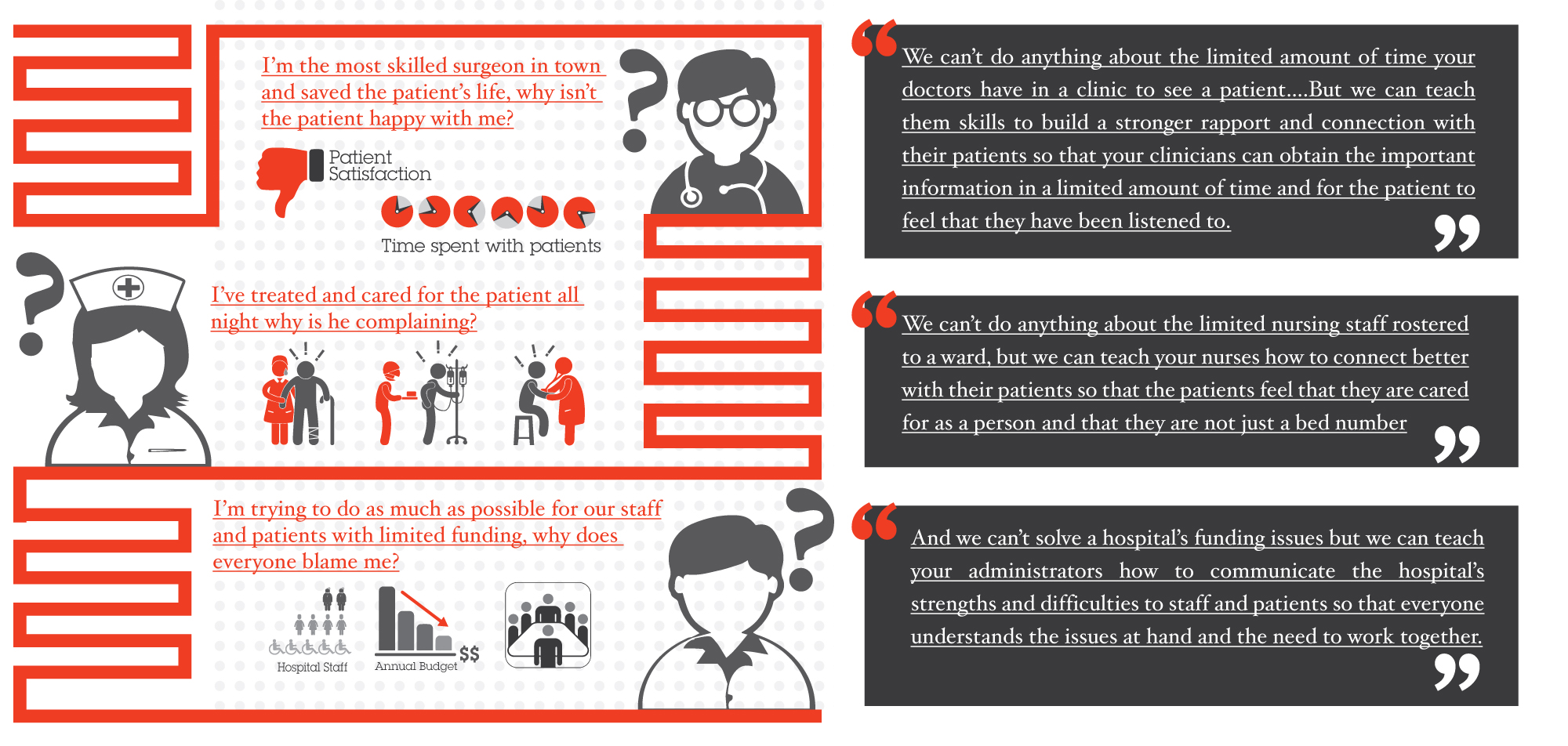Adam works as a corporate communications head in a hospital and is just about to announce...
Hear from Dr Augustine Tee how stories have helped him
"Your blog post titled Don't simply announce your change ideas. Successfully implement them with Stories. captures the essence of my struggle. I have been giving orientation talks on MET ( Medical Emergency Team ) every 3 to 4 months to batches of doctors rotating into CGH, and have been doing this for the last 5 years. The task made more challenging since no other hospital in Singapore has a rapid response system like our medical emergency team.
In the past, I concentrated on facts and instructions brought forth by my slides, and can frequently see the disinterested faces in the audience. Earlier this year, I focused on a TED-style storytelling (using a failure story and a success story) format to deliver the content, rather than too many slides or info overload. I could see emotions in peoples faces and I felt that we've connected, in fact there was applause at the end of it for the first time.
I now hope my message translates into the culture change we advocate in CGH, and more lives saved."











